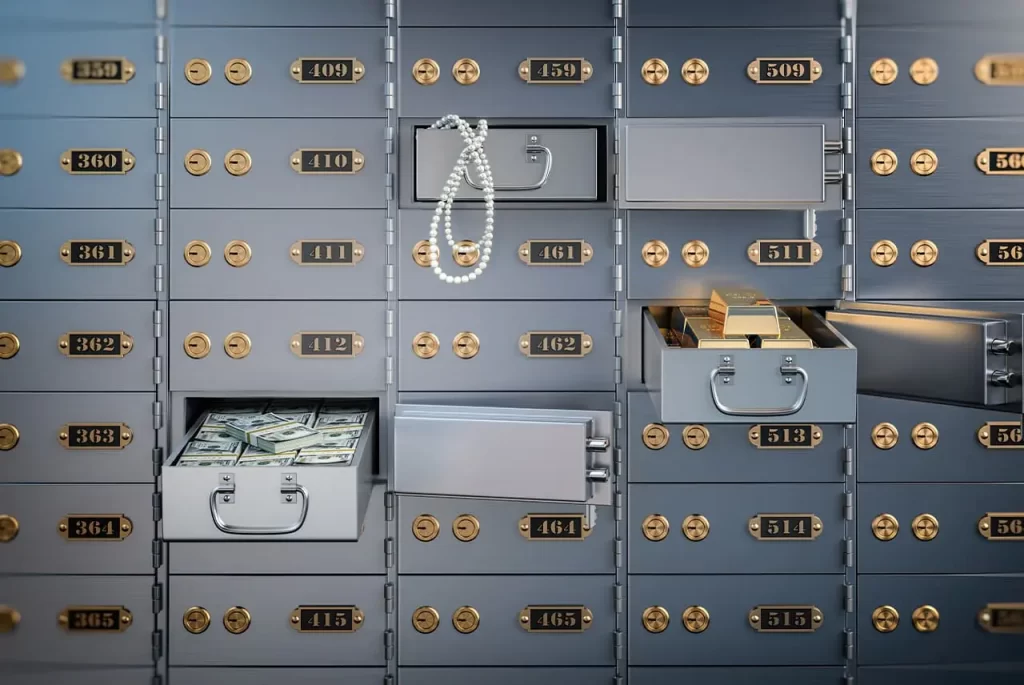The passing of a loved one brings about numerous challenges, and one aspect often overlooked is the fate of assets stored in a safe deposit box. In the state of New York, the administration of a safe deposit box in the aftermath of a decedent’s demise involves intricate legal considerations. I will try to shed light on the fate of cash stored in a safe deposit box in this blog, particularly when jointly owned by a spouse or child, and provide answers to some frequently asked questions concerning the opening of safe deposit boxes in New York after death.

Cash in a Safe Deposit Box: Decoding the Dilemma but ALWAYS A BAD IDEA
When a decedent in New York possesses a safe deposit box containing cash, the handling of this asset varies depending on the ownership structure. If the spouse jointly owned the box, the surviving spouse may sometimes gain access to the contents just because financial institutionshave a soft spot for spouses. Technically speaking, the law does not allow such access. If a child is a joint owner, access will be restricted until the probate or administration process is complete.
Navigating the aftermath of a loved one’s passing involves a delicate balance of emotions and legal considerations. Understanding the fate of cash in a safe deposit box, especially when jointly owned, empowers families to address these matters efficiently BEFORE DEATH. My advice is deal with it now in a correct and lawful way to ensure a smooth transition to your loved ones.
The key lies in proactive estate planning, ensuring that the distribution of assets aligns with the decedent’s wishes while adhering to New York’s probate procedures. By demystifying the legal intricacies surrounding safe deposit boxes, we can honor the legacy of our loved ones with clarity and transparency.
Frequently Asked Questions (FAQ)
Access for a child will most certainly be restricted until the probate process is finalized. The legal representative of the estate, typically the executor, will oversee the distribution of assets and the inventorization of the contents of the box together with the bank representative.
Yes, the procedure involves filling an application with the court to search the box for a will of the decedent.
Cash in the safe deposit box is considered part of the decedent’s estate. It is subject to probate, and its value contributes to the overall assets that will be distributed according to the will or intestate succession laws.
Our answer is no. While a safe deposit box is secure, relying solely on it for cash storage may present challenges in immediate access for heirs. Including instructions on accessing liquid funds in the estate plan is advisable.


